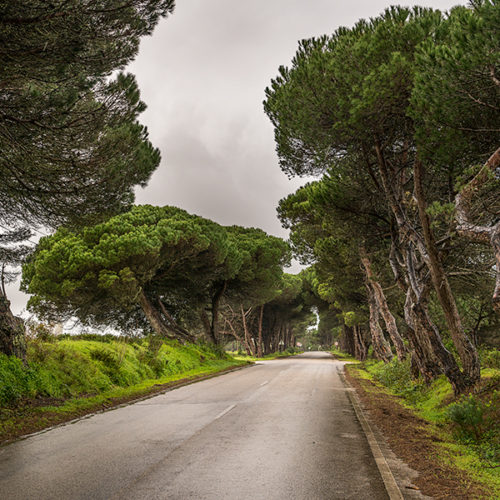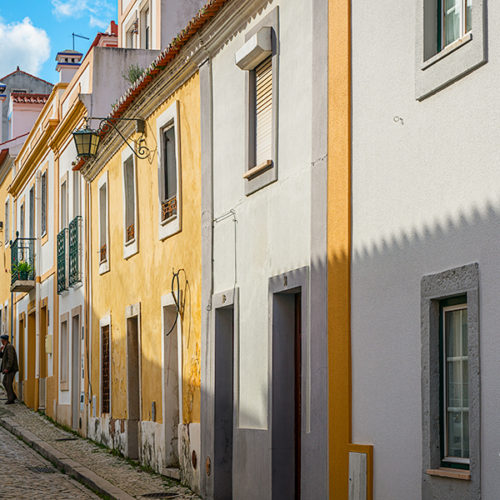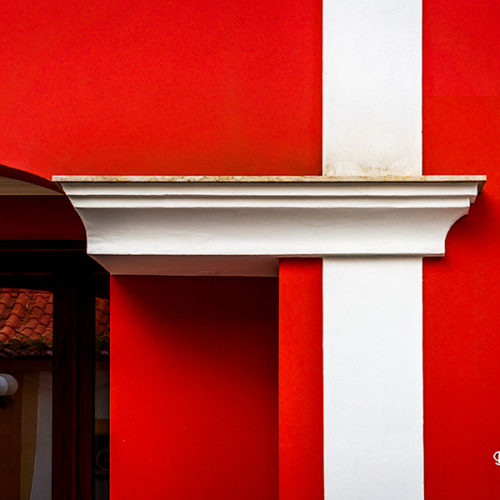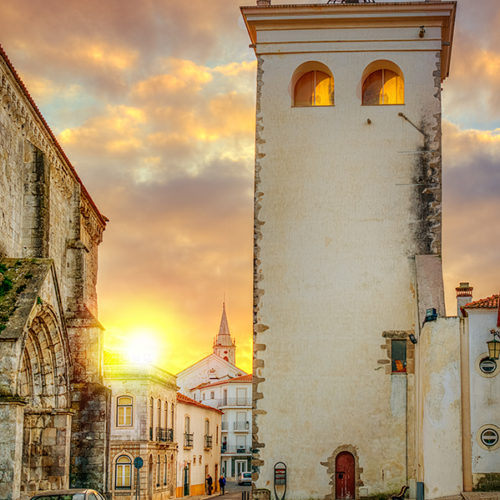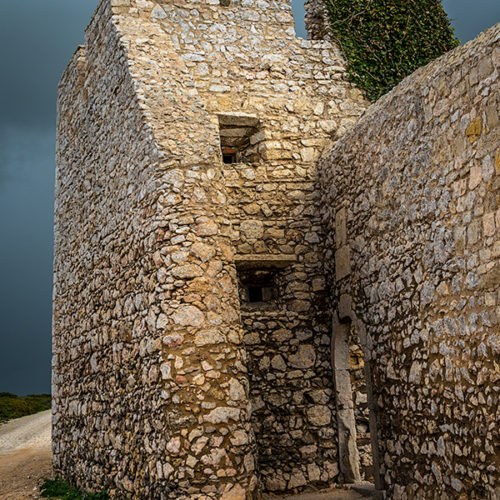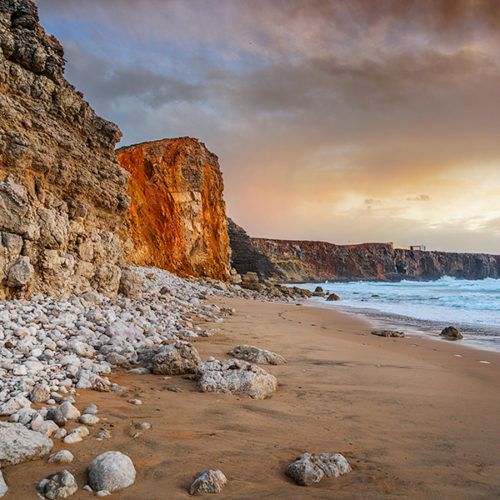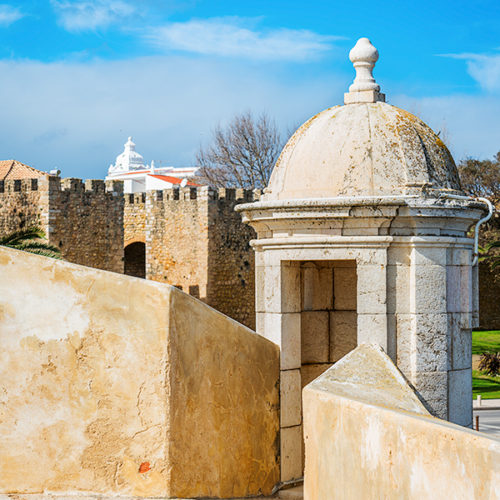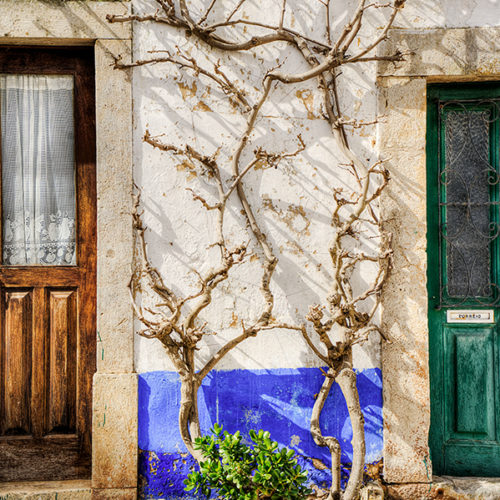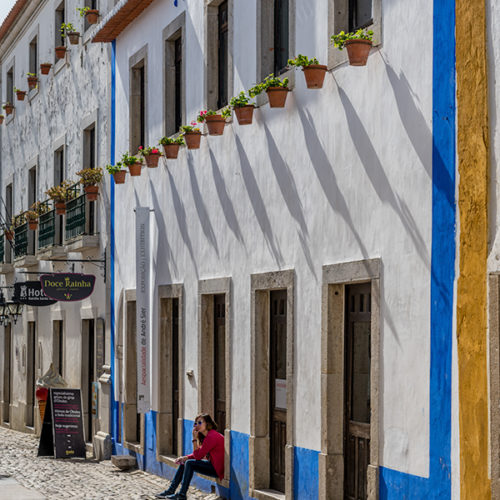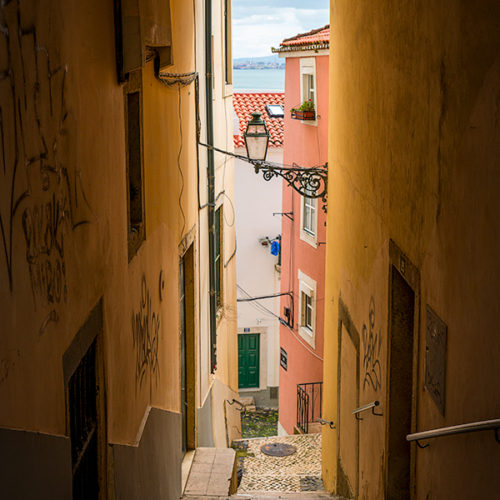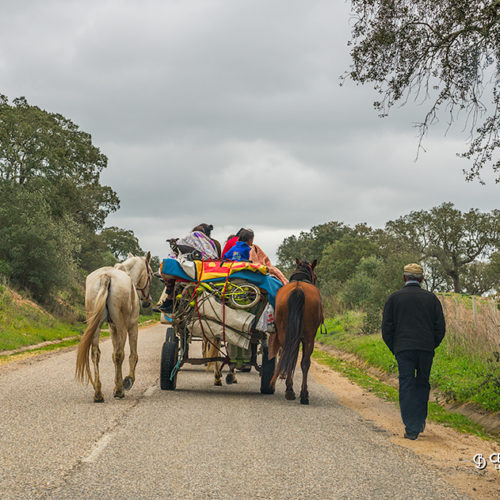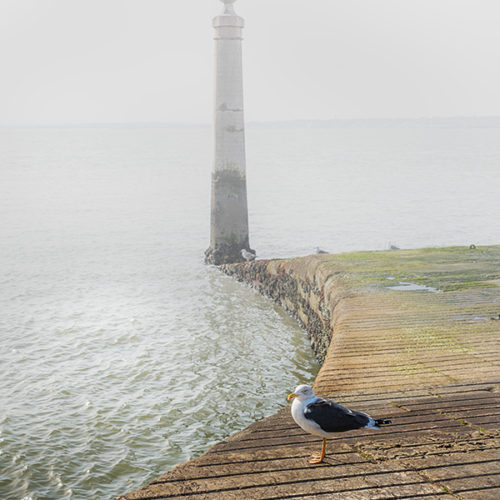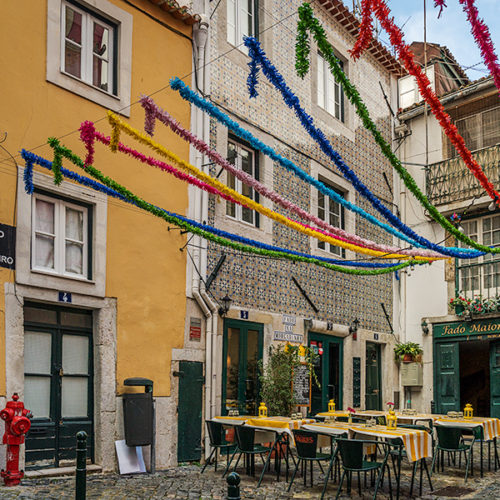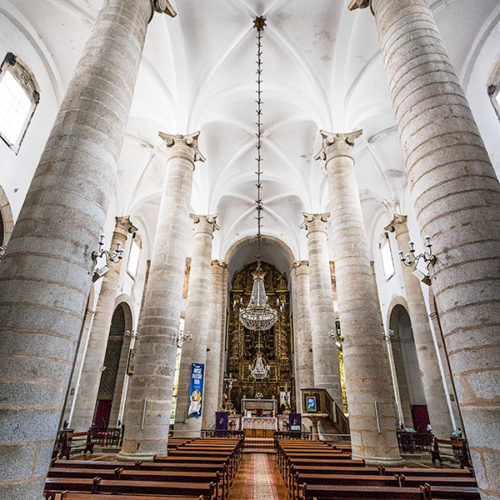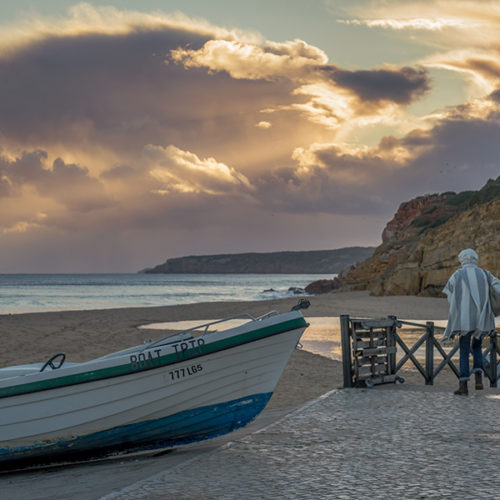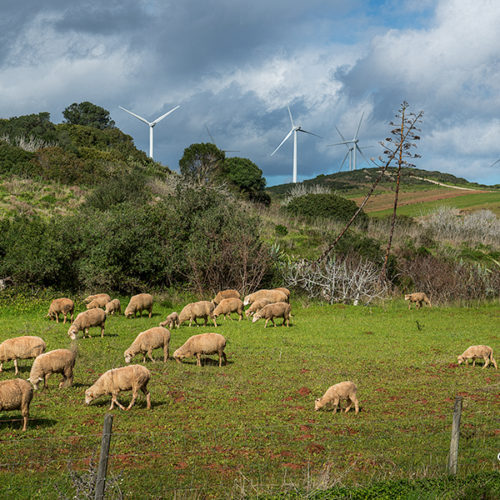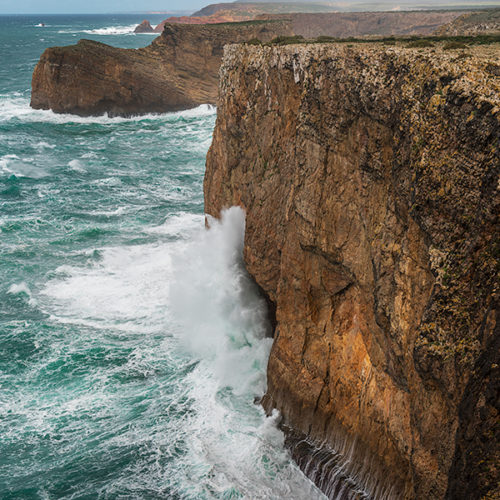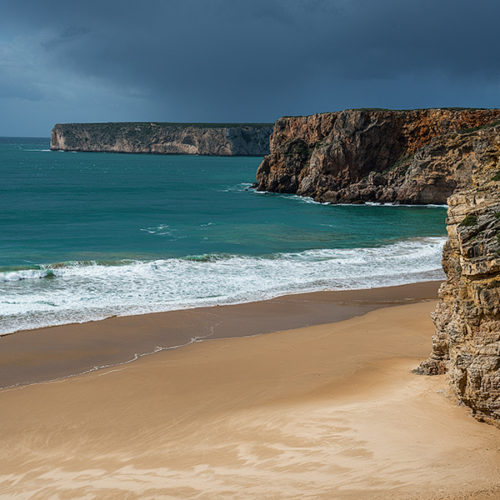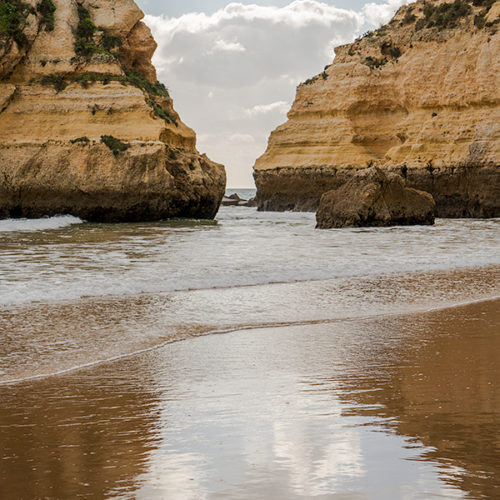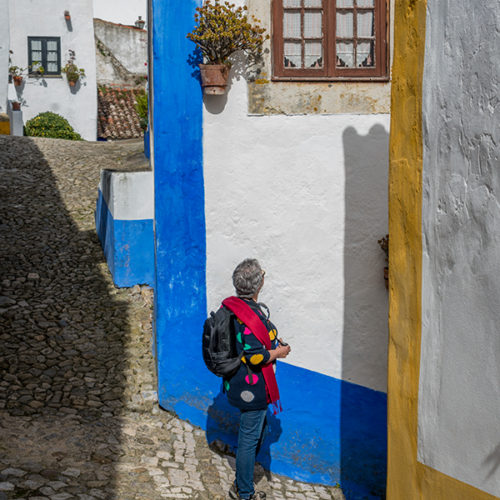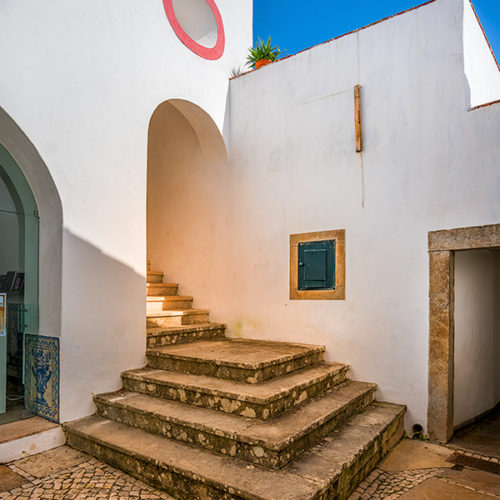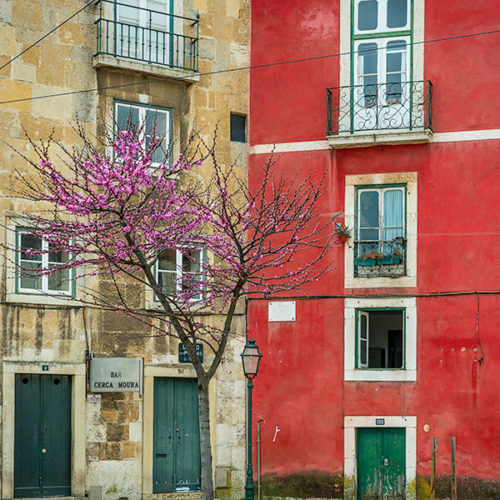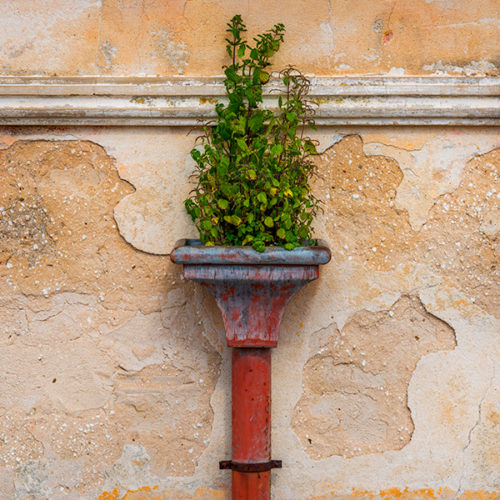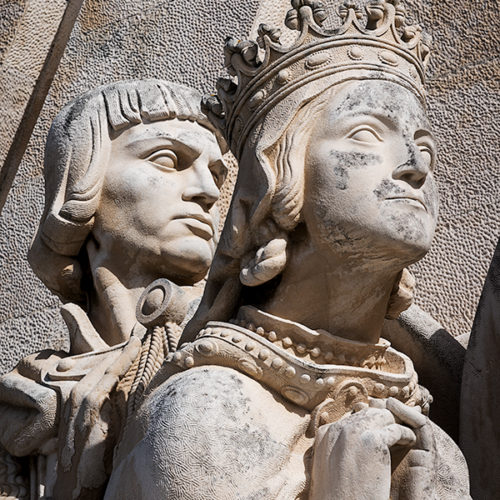On the way to Santiago do Cacém, the old pine trees in a weird and beautiful formation along the roads.
Portugal
On the narrow streets of Santiago do Cacém, ranked by the traditional Portuguese facades, there is always room and time for a discussion about the political situation or the soccer results from the last weekend.
Very lively houses inspired by a style that comes from centuries. The bright light all year around accentuates the colors and brings up the mood of the owners and passersby.
Even though the city was founded by the Romans around the 2nd Century BC, Santarém is still a small city comprising 70,000 inhabitants. Its roots, along with most of that region, stem from the Lusitani, the people with Celtic roots. The Romans conquering the region, called it Lusitania. Today, a Portuguese speaking language is also called a Lusitan.
An old edification in the city of Sagres, the southernmost one of Portugal.
Rocky beaches, rough grainy sand, strong scarps and beautiful skies… Sagres, the legendary city of the sailors!
Fort Ponta da Bandeira in Lagos, built before 1700, directly facing the Atlantic Ocean.
One cannot ignore the beauty and characteristic style of the houses in Obidos, a small medieval city whose origins come from early settlements predating the Romans. Celts, Moors and Visigoths were some of people formations that dominated the region, eventually taken by the Portuguese around 1100.
In February, not many tourists in Óbidos, there is time for a pause and a cigarette in this souvenirs shop. Next to it, there is a restaurant with delicious and affordable food and a hotel right at the main street (very narrow, by the way). Only local cars can be used here and during limited hours for very specific purposes.
The narrow streets (if we could call these passages as streets) in Alfama, Lisbon.
Gypsies, with all their possessions, moving from one city to another in Alcáçovas. With their own traditions, they dislike being photographed and, as soon as they saw the camera, they started throwing sticks of wood at us. The Portuguese people have a circumspect respect for them and allow them to move freely anywhere they want as they are nomads by nature. In some cases, they camp in places where they could seize a cow or a lamb without permission to feed and form provisions for the next stop.
A foggy morning by the River Tagus in Lisbon.
In Alfama, Lisbon, a traditional restaurant where the fado is sung every night. From where we stayed, we could hear the distant voice of the singer echoing until around midnight. Interestingly, fado is a pleasant musical expression that permeates the spaces in a light way.
The imposing columnata in the Saint Anthon’s Church, built around 1560 with parts of a previous church on the same place, Evora.
In the old fishermen village of Salema, the weather getting ready for a showtime. Old houses and modern small buildings mix harmoniously with the still present tradition of fishing. In some parts, recent developments brought a lot of speculation thus raising the overall prices. Nevertheless, good food at a reasonable price is still a must there.
Modern and tradition living together in Salema. Portugal strives in development without loosing its roots. This is what makes this place a must for visiting.
The cliffs of Sagres constantly being hit by the eternal waves.
A calmer place at the shore in Sagres where surfing and bathing is a must!
Beautiful formations produced by natural erosion in Portimão.
The cozy houses of Óbidos. The marine blue, white and gold dominates all the houses.
In Obidos, the entrance of a public restroom, unattended, but nevertheless clean and tidy.
Early in a Sunday morning, the peace of typical houses with the Portuguese architecture in the famous Alfama neighborhood in Lisbon.
Long unused, the gutter of a building almost falling apart in Alcacer do Sal. The only residents of this building were pigeons.
A detail of the large Padrão dos Descobrimentos (Monument to the Discoveries) facing the River Tagus in Belém, Lisbon. Here, is shown Peter, Duke of Coimbra and Philippa of Lancaster. Portugal was famous for its navigation abilities and discoveries around the world.

